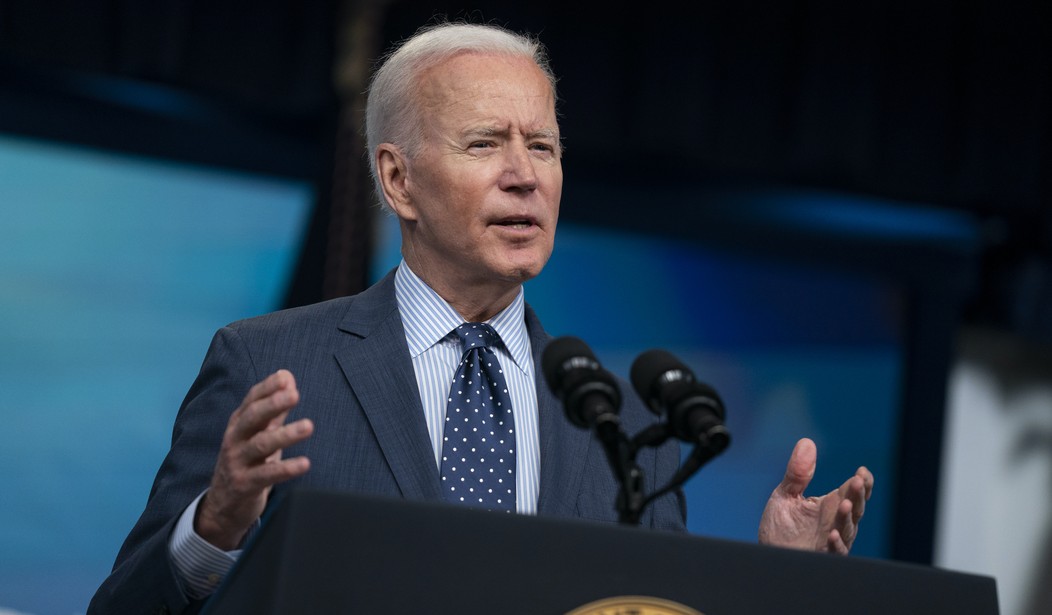Joe Biden and Republican senators celebrated last week when a bipartisan group of lawmakers hammered out a deal for a $1.2 trillion infrastructure bill. Roads, bridges, broadband access — the bill is filled with something for everyone.
Everyone except the taxman.
You and I look at a bill that costs $1 trillion and wonder how our heroes in Congress are going to pay for it without raising taxes. Both sides have said that the trillion dollars in infrastructure is “paid for.” In addition to being curmudgeonly cynics, you and I are also realists.
We know bullcrap when we hear it.
Related: Republicans Fall for Biden’s Infrastructure ‘Bait and Switch’
Tax Policy Center’s Howard Gleckman had a slightly different take but reached the same conclusion: “On top of already planned spending for roads, bridges, transit, water, and broadband, it would amount to a massive $1 trillion. And they have agreed to pay for it largely with…pixie dust.”
And this is from a liberal tax policy expert.
“Let’s face it: If Congress wants to pay for a $1 trillion spending plan without raising the deficit, the only real ways to finance it are by raising taxes, cutting other spending, or both,” Gleckman wrote. “This agreement does very little of either. And while the White House fact sheet describing the agreement includes no revenue estimates with its brief descriptions of the pay-fors, they are certain to generate far less than the plan costs. ”
Along with repurposing stimulus money and selling oil from the Strategic Petroleum Reserve, the other funding ideas from the bipartisan group include extending the mandatory sequester, which would cut payments to Medicare providers if Congress doesn’t meet certain budget targets, and using funds from the 5G spectrum sale in February, which the senators are counting as new spending.
“Pixie dust” doesn’t cover the level of delusional thinking necessary to actually believe that selling a few million tons of oil from the Strategic Petroleum Reserve would play a significant role in paying for the bill.
“There’s not a chance they’re going to get it off a list like this,” Gleckman told the Washington Post. “It’s full of stuff that isn’t a tax increase and isn’t a spending cut and is just wishful and fanciful.”
Reducing the tax gap through stricter Internal Revenue Service enforcement was included in the bipartisan deal, though, which Sen. Mark Warner (D-Va.), part of the bipartisan group, told reporters that “there’s lot of evidence that if you invest more in the IRS, it’s going to pay a huge dividend.”
Insider previously reported that lawmakers on both sides of the aisle agree IRS enforcement should remain. But even so, revenue generated from stricter enforcement would not come close to closing the tax gap – between what’s owed and what the IRS collects – of as much as $1 trillion per year. Even with Biden’s initial proposal of $80 billion more in IRS funding, hundreds of billions of taxes would still go uncollected each year.
Maybe they can make the IRS another branch of the military and hire tens of thousands of more auditors Or perhaps it would be easier to just simplify the tax code.
Congress never does anything that would be “easier.” In the immortal words of S.R. Hadden in the film Contact: “First rule in government spending: why build one when you can have two at twice the price?” It’s more politically productive to hire more IRS employees than it is to make the tax system easier to comply with.
The whole question of paying for the plan may become moot before too long. Republicans are grumbling about Biden’s recent proposed double-cross of linking the bill to the rest of Biden’s spending schemes. The president was saved from his own stupidity by aides who suggested he backtrack immediately or the deal would be off the table.
But even now that Biden says he’ll sign the bill regardless of circumstances, the GOP is coming up short finding 10 senators who will agree to send the bill to the floor and avoid a filibuster. In fact, the radical left may oppose the bill on principle.
But as an exercise in transparent government, the bill is an epic fail.










